Topic: Local Government Management
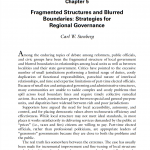
Fragmented Structures and Blurred Boundaries: Strategies for Regional Governance
Among the enduring topics of debate among reformers, public officials, and civic groups have been the fragmented structure of local government and blurred boundaries in relationships among local units as well as between localities and their state government. Critics have pointed to the excessive number of small jurisdictions performing a limited range of duties, costly duplication of functional responsibilities, parochial nature of interlocal relationships, and time and expertise limitations of part-time elected officials. Because of small size and antiquated governing and administrative structures, many communities are unable to tackle complex and costly problems that spill across local boundary lines and require timely collective remedial actions. As a result, tensions have grown between special and general-purpose units, and disparities have widened between rich and poor jurisdictions Supporters have argued the need for local accessibility, autonomy, and control, and for placing democratic values above technocratic efficiency and effectiveness. While local structure may not meet ideal standards, in most places it works satisfactorily in delivering services demanded by the public at “prices” (i.e., taxes and fees) citizens are willing to pay. Part-time elected officials, rather than professional politicians, are appropriate leaders of “grassroots” governments because they are close to both the problems and the public.
Cite as:
Stenberg C.W. (2008) Fragmented Structures and Blurred Boundaries: Strategies for Regional Governance. In: Morgan I.W., Davies P.J. (eds) The Federal Nation. Studies of the Americas. Palgrave Macmillan, New York
…
Continued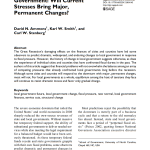
The Future of Local Government: Will Current Stresses Bring Major, Permanent Changes?
The Great Recession’s damaging effects on the finances of cities and counties have led some observers to predict dramatic, widespread, and enduring changes to local government in response to fiscal pressure. However, the history of change in local government suggests otherwise, as does the experience of individual cities and counties that have confronted fiscal duress in the past. The authors of this article suggest that financial problems will not overwhelm the balance among an array of competing pressures that already confronted local governments long before the recession. Although some cities and counties will respond to the downturn with major, permanent changes, most will not. For local governments as a whole, equilibrium among the host of tensions they face will continue to resist dramatic moves and favor only gradual change.
Cite as:
Ammons, D. N., Smith, K. W., & Stenberg, C. W. (2012). The Future of Local Government: Will Current Stresses Bring Major, Permanent Changes? State and Local Government Review, 44(1_suppl), 64S-75S. https://doi.org/10.1177/0160323X12454143
…
Continued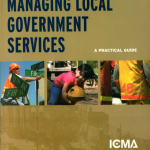
Managing Local Government Services: A Practical Guide
An indispensable resource, this comprehensive text on the subject of local government services is relevant to local governments of all sizes. It includes demographic, economic, technological and cultural trends that affect the management of service delivery. New chapters discuss the shift from “government” to “governance,” alternative methods of service delivery, community development, and the five management practices that are fast becoming the standard for professional local government management.
Cite as:
Austin, S., W. Stenberg, Carl (2007). “Managing Local Government Services: A Practical Guide”
…
Continued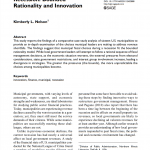
Municipal Choices during a Recession: Bounded Rationality and Innovation
This study reports the findings of a comparative case study analysis of sixteen U.S. municipalities to
provide an in-depth examination of the choices municipal leaders are making to address revenue
shortfalls. The findings suggest that municipal fiscal choices during a recession fit the bounded
rationality model. While local government leaders will attempt to follow a rational sequence of fiscal
management decisions, as the economic situation worsens, the external pressures from electoral
considerations, state government restrictions, and interest group involvement increase, leading a
divergence in strategies. The greater the pressures (the bounds), the more unpredictable the
choices among municipalities become.
Cite as:
K. L. Nelson, (2012). “Municipal Choices During a Recession: Bounded Rationality and Innovation”
…
Continued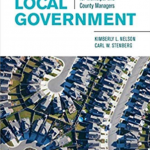
Managing Local Government: An Essential Guide for Municipal and County Managers
…
Continued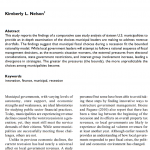
Municipal Choices during a Recession: Bounded Rationality and Innovation
This study reports the findings of a comparative case study analysis of sixteen U.S. municipalities to
provide an in-depth examination of the choices municipal leaders are making to address revenue
shortfalls. The findings suggest that municipal fiscal choices during a recession fit the bounded
rationality model. While local government leaders will attempt to follow a rational sequence of fiscal
management decisions, as the economic situation worsens, the external pressures from electoral
considerations, state government restrictions, and interest group involvement increase, leading a
divergence in strategies. The greater the pressures (the bounds), the more unpredictable the
choices among municipalities become.
Cite as:
Nelson, Kimberly L. (2012). Municipal Choices During a Recession: Bounded Rationality and Innovation.
…
Continued
